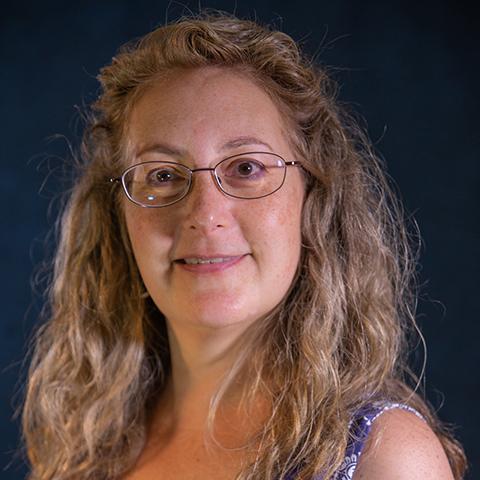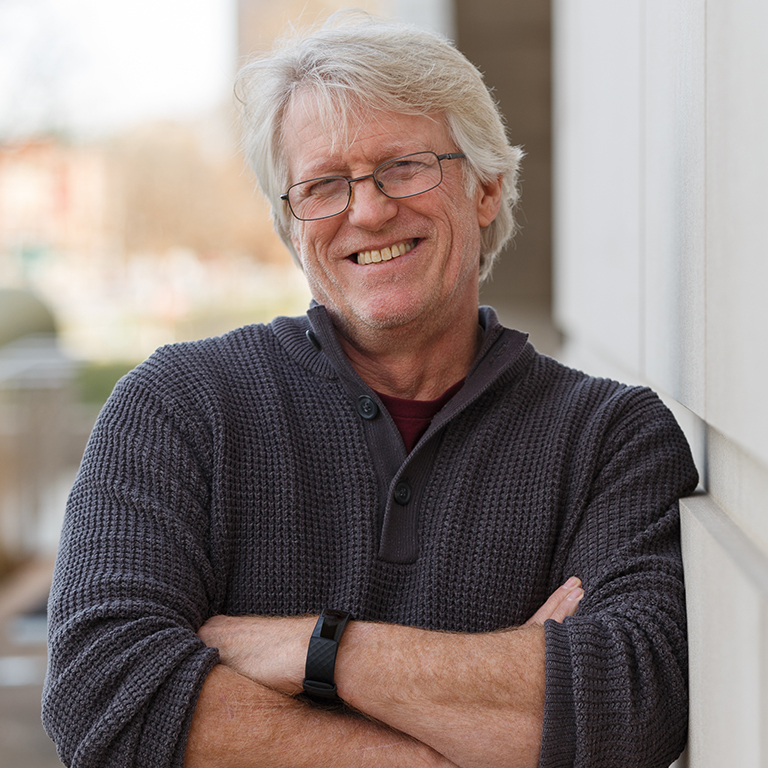Explore Jobs
Find Specific Jobs
Explore Careers
Explore Professions
Best Companies
Explore Companies
Job outlook for photography teachers in the United States
Are photography teacher jobs in demand?
Photography Teacher job and salary trends over time
Photography Teacher jobs over time
Photography Teacher job growth rate over time
| Year | # Of Jobs | % Of Population |
|---|---|---|
| 2021 | 1,988 | 0.00% |
| 2020 | 1,931 | 0.00% |
| 2019 | 2,018 | 0.00% |
| 2018 | 2,049 | 0.00% |
| 2017 | 2,002 | 0.00% |
Average photography teacher salary over time
Photography Teacher salary by year
| Year | Avg. Salary | Hourly Rate | % Change |
|---|---|---|---|
| 2025 | $46,067 | $22.15 | +2.0% |
| 2024 | $45,180 | $21.72 | +2.2% |
| 2023 | $44,199 | $21.25 | +1.9% |
| 2022 | $43,356 | $20.84 | +2.0% |
| 2021 | $42,521 | $20.44 | +1.5% |
Photography Teacher jobs by state
Most common states for photography teachers
| Rank | State | Population | # of Jobs | Employment/ 1000ppl |
|---|---|---|---|---|
| 1 | District of Columbia | 693,972 | 112 | 16% |
| 2 | New Hampshire | 1,342,795 | 164 | 12% |
| 3 | Colorado | 5,607,154 | 597 | 11% |
| 4 | New Jersey | 9,005,644 | 892 | 10% |
| 5 | Maryland | 6,052,177 | 634 | 10% |
| 6 | Delaware | 961,939 | 93 | 10% |
| 7 | Illinois | 12,802,023 | 1,198 | 9% |
| 8 | Massachusetts | 6,859,819 | 627 | 9% |
| 9 | Minnesota | 5,576,606 | 508 | 9% |
| 10 | New Mexico | 2,088,070 | 191 | 9% |
| 11 | Montana | 1,050,493 | 90 | 9% |
| 12 | Nebraska | 1,920,076 | 146 | 8% |
| 13 | Virginia | 8,470,020 | 619 | 7% |
| 14 | Iowa | 3,145,711 | 213 | 7% |
| 15 | Kansas | 2,913,123 | 190 | 7% |
| 16 | Florida | 20,984,400 | 1,274 | 6% |
| 17 | Pennsylvania | 12,805,537 | 810 | 6% |
| 18 | Oklahoma | 3,930,864 | 248 | 6% |
| 19 | Vermont | 623,657 | 40 | 6% |
| 20 | Wyoming | 579,315 | 35 | 6% |
Photography Teacher job outlook: Expert opinions
Our panel of photography teacher experts

Texas Christian University
California State University, Long Beach

University of New Orleans

Shepherd University
Duke University
SUNY New Paltz
University of Kansas

Auburn University-Montgomery

University of Mary Washington

University of California

Indiana University - Purdue University Indianapolis - Herron School of Art and Design
Montana State University
Ashland University

American University

Kalee Appleton
Assistant Professor of ArtTexas Christian University
College of Fine Arts
What skills stand out on Photography Teacher resumes?
Kalee Appleton: A Photography Professor/Instructor has a CV (curriculum vitae) rather than a resume. Skills are not typically included on a CV. If a person is applying for a Photography Professor/Instructor position, it is usually required that they have an MFA in Studio Art with an emphasis in Photography. With this degree, it's understood that they would know/have the following:
-Camera operation
Digital, analog, view camera
-Lighting (artificial)
-Historical photographic processes
Wet Darkroom
Alt Processes
-Digital processes
Post-production
Inkjet Printing on large format printers
Photoshop/lightroom
-Personal Artwork that is exceptional
What soft skills should all Photography Teachers possess?
Kalee Appleton: Time Management, creative thinking, flexibility, self-motivation, leadership, decisiveness, patience.
What hard/technical skills are most important for Photography Teachers?
Kalee Appleton: The most vital aspect of getting a job as a Photography Professor/Instructor is to have strong, personal artwork/photographs. Their portfolio must be exceptional. They would also need an MFA in Studio Art and have teaching experience to be considered.
What skills will help Photography Teachers earn the most?
Kalee Appleton: Having a strong, personal portfolio. Having the ability to create a cohesive body of photographs that have a concept and good technique. In other words, being an exceptionally good fine art photographer is vital to be considered for high-paying positions.
Laurie Gatlin Ph.D.
Associate Professor of Art EducationCalifornia State University, Long Beach
School of Art
What experience really stands out on Photography Teacher resumes?
Laurie Gatlin Ph.D.: Right now, the ability to write engaging lessons that can be delivered with scaffolded experiences, all organized in a learning management system. Not so much different than what they have been learning, but the delivery mode is structured differently. Our students in general learn how to write engaging, community-based lessons that connect their students lived experiences with their formal education in art.

Kalo Gow
Assistant Professor of Voice and Movement & Graduate Coordinator for TheatreUniversity of New Orleans
Department of Film and Theatre
What type of skills will young Photography Teachers need?
Kalo Gow: I believe it was an article from Backstage that noted that 85% of all auditions were digital even before the pandemic. Though this article referred to film, television, and media auditions, many theatre companies host open auditions utilizing digital submissions. Our graduate theatre applicants submit digital auditions when unable to travel for an on-campus visit. For Theatre UNO, I offered a Special Topics course this term on Digital Auditions. Performers must understand best practices and be able to do their best work both digitally and in-person. At UNO, the MFA in Film focuses on production, while the MFA in Performance covers both theatre and on-camera work. Actors are most often trained by theatre departments and take on-camera classes as electives.

Will there be an enduring impact of the coronavirus pandemic on Photography Teachers?
Sonya Evanisko: For certain, the pandemic will cause an enduring impact on fine art graduates, in the aspect that individuals may have fewer resources to spend on art/design services or on purchasing artworks or art institutions cutting positions or closing. As always, artists need to be resourceful and utilize their skill set to find employment in fields that might not seem art related on the surface. Studio artists often supplement their art income by holding positions in visual/retail display, fine carpentry, foundry work, or on creative teams in places that build sets for tv production, theme parks, etc. Many photographies and graphic design graduates are working as freelancers and utilizing social media to offer their creative services directly to their communities or the larger public.
Are there any particularly good places in the United States for Photography Teachers to find work opportunities?
Sonya Evanisko: Art graduates may be avoiding the larger cities that are known for employment in the arts due to the oversaturation of artists in these areas, high cost of living, and a number of virus cases in dense cities such as New York or LA. I see art graduates gravitating towards smaller cities such as Baltimore, MD; Pittsburgh, PA; Columbus, Ohio; Charlotte, NC, etc.
How do you envision technology impacting Photography Teachers in the next 5 years?
Sonya Evanisko: I think technology impacts the field less in the creation of the work but more in the way that artists are able to sell and distribute their work and artistic/design services. Artists have been using new digital technologies to create works in design, illustration, photography, as well as laser cutting and 3-D printing technologies in craft areas, painting, sculpture, and so forth before the pandemic started. I think online marketing and selling of artworks and art services using the current technology has increased as artists recognize more and more that they cannot wait for the art establishment to recognize their work and sell it for them.
Artists need to be the agents that get their work and services noticed and make sales directly, and this is where technology assists them- as well as good skills in marketing themselves and their work/art services. Artists need to be savvy business people as well as creative makers. A good art school will empower and inform their students by offering professional practices and business/marketing courses as an integral part of the art degree. At Shepherd University, our art curriculum requires three courses in Professional Practices as part of the BFA degree and offers more elective opportunities for the students to take more courses in this area if they choose.
Are there any particularly good places in the United States for Photography Teachers to find work opportunities?
Paul Jaskot Ph.D.: From my perspective, graduate students tend to overlook, in particular, the many institutes, small and large, of Holocaust Studies that exist in colleges, universities, and independently in museums. All of these institutes need staff, and knowledgeable staff at the level of a Ph.D. in Holocaust Studies is hard to come by. Mind you, as with all areas of culture, these, too, will be impacted by CoVID. But the interest in the Holocaust and, sadly, comparative genocide will not wane, given that it maintains a contemporary and powerful relevance.
How do you envision technology impacting Photography Teachers in the next 5 years?
Paul Jaskot Ph.D.: I would advise any graduate student who is not already experimenting with digital methods to do so, immediately. Whether going the professor route or the institute route, students must be technically savvy, and that means understanding what kinds of Holocaust questions are appropriate for digital methods. Debates in the Digital Humanities are at the fringes of Holocaust Studies, but those fringes can also be seen as leading edges. Five years from now, there will likely be no academic job that does not require some understanding and use of digital methods, either in research or in the classroom.
Andrea Varga
Associate Professor of Design/Sustainability Faculty FellowSUNY New Paltz
School of Fine & Performing Arts
How do you envision technology impacting Photography Teachers in the next 5 years?
Andrea Varga: Obviously, innovation and using technology to create new forms of storytelling and entertainment are going to dominate, so anyone who is trained and excited about working in technology is going to have a better chance of finding employment. I think that anyone making sound/audio, lighting, and programming, as well as managers who are adept at working with technology, is going to be in a good position to pivot. It is likely going to be harder for those who work in the traditional artisan crafts areas like carpentry, costumes, etc.
Those are expensive for producers to support and take up space to do, plus there probably is going to be less call for those things. I'm really sad to say that because personally, I love those areas. I hope our artisans don't give up but are able to find different fields to utilize those amazing skills. I have one class of 2020 graduates in Costume Design/Technology who just got a job with an organic/sustainable textile company as a dyeing apprentice, and I'm thrilled to see her find related work.
Will there be an enduring impact of the coronavirus pandemic on Photography Teachers?
Andrea Varga: Absolutely. I know that some current and recent graduates have already started looking for-and some have secured-work in other fields that are of related interest, or that they have experience in, e.g., digital media, film production, fashion, sustainability fields, management in essential retail like grocery stores, or helping manage new COVID standards in workplaces. I think students trained broadly in our discipline realize they have many marketable skills, in particular being able to collaborate and plan, that work in many fields. They see the writing on the wall for the near future in our industry that already had so many people entering it, and they are not going to just sit by and wait for things to open up. They need to start careers now, so they are looking around.
What Photography Teacher skills would you recommend for someone trying to advance their career?
Tanya Hartman: In the past, New York, London, Los Angeles, and Chicago were loci of creativity and culture, but with the cost of living in those places so high, I would say that any affordable location is a good location to hunker down, get a job that doesn't crush your spirit and make art.
Will there be an enduring impact of the coronavirus pandemic on Photography Teachers?
Tanya Hartman: I think that online exhibitions will allow artists to share their work affordably, as shipping large, heavy works of art is financially daunting. I think attendance at artist's lectures will increase because people will attend remotely. But I think that making art digitally will not increase but remain one option, among many, for creating. People love to make objects using physical materials. It seems inherent to human nature. Some experience the computer as material, as a tangible object through which creativity flows, while others prefer to paint or clay, but what matters most is that our culture support all forms of making, and that dialogue occurs, whether through remote of face to face contact.

Nikhil Ghodke
Assistant Professor in Graphic DesignAuburn University-Montgomery
Department of Fine Arts
Will there be an enduring impact of the coronavirus pandemic on Photography Teachers?
Nikhil Ghodke: In the current scenario, as we ride out the pandemic, the way we go about our lives, including jobs and workplaces, might change for the long term. This would mean certain job roles will have less demand, and new job roles will be created. As the unemployment numbers remain high, it will affect graduates, who would be competing with job seekers with prior work experience. This is certainly a less than ideal situation for graduates, especially those with student loans. This will leave them with higher debts and might take them longer to settle, buy homes, etc.

Janine Davis Ph.D.
Associate ProfessorUniversity of Mary Washington
College of Education
Will there be an enduring impact of the coronavirus pandemic on Photography Teachers?
Janine Davis Ph.D.: For our teacher education graduates, the impact of the pandemic will most likely work in their favor when it comes to finding jobs-the pandemic has led to many retirements, which will mean that we will need even more teachers to fill those empty positions. At the same time, the advent of increased virtual learning means that it will no longer be an option that teachers know and use technology, including teaching online and using learning management and data analysis systems-those skills will almost certainly be a non-negotiable for future teaching positions. Finally, I think that this event has highlighted the importance of working as part of a team of teachers and other school leaders.

Will there be an enduring impact of the coronavirus pandemic on Photography Teachers?
Lonnie Rafael Alcaraz: Yes. In the world of theatrical/live event lighting design, it is going to take years to get back to normal. Students graduating in 2020 and 2021 will have to diversify their skillset. If they want to thrive in the entertainment industry, for the next few years, they will need to have skills in Architectural lighting, TV, and film.
Are there any particularly good places in the United States for Photography Teachers to find work opportunities?
Lonnie Rafael Alcaraz: At the moment, all the normal avenues are not thriving. Graduates can look for work in the animation and gaming worlds as a lot of the same lighting ideas exist there.
How do you envision technology impacting Photography Teachers in the next 5 years?
Lonnie Rafael Alcaraz: Much more digital rendering and animation will be needed. At UCI, we center on that, but will need to push it even more in lieu of live performance work.

What technology do you think will become more important and prevalent for Photography Teachers in the next 3-5 years?
Greg Hull: We have seen an increase in the use and need for technology to connect and bring people, ideas, and resources together, locally and globally. We have also seen many advances in telematics, data visualization, human/computer interfaces, and digital fabrication, including AR and VR based tools. I believe these advances will continue and increase in the future. I also think that we will see a renaissance, in which the ability to actively bridge traditional and emerging technologies will be highly sought after.
Will there be an enduring impact of the coronavirus pandemic on Photography Teachers?
Greg Hull: Yes, I believe that everyone's lives will continue to be changed as a result of the pandemic. The global, national, and local impact of the virus in economic, social, and political discourse will likely play a central role in the lives and work of professionals from every field. If we can avoid the impulse to contract and narrow our focus, there is a rare, possibly once in a lifetime, opportunity for people from diverse communities, both locally and globally, to speak with a more singular voice. Across the planet, everyone has shared an experience that is unique to this generation. While the coronavirus has brought a great deal of devastation, I hope that we don't miss the opportunity to leverage this shared experience as a springboard from which to build and act.
Will there be an enduring impact of the coronavirus pandemic on Photography Teachers?
Josh DeWeese: Yes, I think there will be an enduring impact from the pandemic, both positive and negative. It has already caused a shift in our thinking, most directly with how we think about the virtual world and the ease of meeting online. Of course, the lack of face-to-face meetings certainly is a loss, but the benefits of working from anywhere and with anyone, worldwide, is a huge benefit. For graduates, this presents a new challenge with identifying their best opportunities, and how to market themselves in the virtual world best.
Are there any particularly good places in the United States for Photography Teachers to find work opportunities?
Josh DeWeese: The Creative Arts and their opportunities are everywhere. This is more true now, with the embrace of the virtual world. We see our students go all over the country, and sometimes around the world, but they are following the internet's opportunities. With the pandemic, we will see more artists working from more remote locations with a good internet connection, where the cost of living is not so out of control.
How do you envision technology impacting Photography Teachers in the next 5 years?
Josh DeWeese: We will see a continued embrace of online platforms and virtual reality technology for sharing artistic experiences in ways we haven't imagined. One thing the pandemic has exposed is the digital divide and the lack of resources available to many to access new developments. I suspect this will always be an issue, and something we must all work to improve.
Will there be an enduring impact of the coronavirus pandemic on Photography Teachers?
Daniel McDonald: I don't think anyone is sure about the enduring impact of the coronavirus pandemic. The joint statements I've heard are that "there is a new normal," or "there can no longer be a status quo." Comments like these are being delivered in meetings where the aim and focus are the proper plans for riding out this pandemic, waiting, and hoping that things get back to normal, as quickly as possible. I'm not sure anyone even agrees on what normal should look like at this point.
Also, from what I saw in the email sent to my colleague, Shawn Orr, you reference 2020 graduates as your article's focus. Those that graduated in 2020 (I'm assuming in May) are dealing with the pandemic in many of the same ways everyone is. If their industry is essential, there are more jobs than applicants. If that is not the case, then I'm sure it's a struggle similar to everyone else.
How do you envision technology impacting Photography Teachers in the next 5 years?
Daniel McDonald: Of course, technological inclusions in all facets of life, are growing every year, and I have to assume that trend will only continue, if not accelerate. The move to virtual environments has been almost brutal for those still in school, with such adaptations happening at great speed. The workforce, too, has adapted swiftly to virtual environments and remote work. I can imagine many of the lessons (and conveniences) learned in this process will carry on long after the pandemic's abatement.

Are there any particularly good places in the United States for Photography Teachers to find work opportunities?
Karl Kippola Ph.D.: One of the silver linings about finding work in the world of theatre is that physical location matters very little. Creating, producing, and promoting theatre in the virtual world has encouraged artists to connect across the country and worldwide, without leaving your house or getting out of your pajamas. New partnerships are forming. People are freely exchanging ideas and inspirations. Of necessity, those looking for work have had to be proactive in reaching out to people they don't know.
But recent graduates also are forming companies specifically designed to address the needs, limitations, and possibilities of our current moment. Creating a career in the arts always has been difficult. It is more difficult now. But not impossible. Again, the world desperately needs skills. Graduates must be tirelessly proactive in looking for opportunities -- and in creating their work.
Once things begin to re-open -- or even if we shift to some limited-capacity, or hybrid form of audience engagement -- then the physical location will start to matter again. Major cities, as before, likely will remain artistic centers. But the theatre always has been everywhere. And it will continue to be.